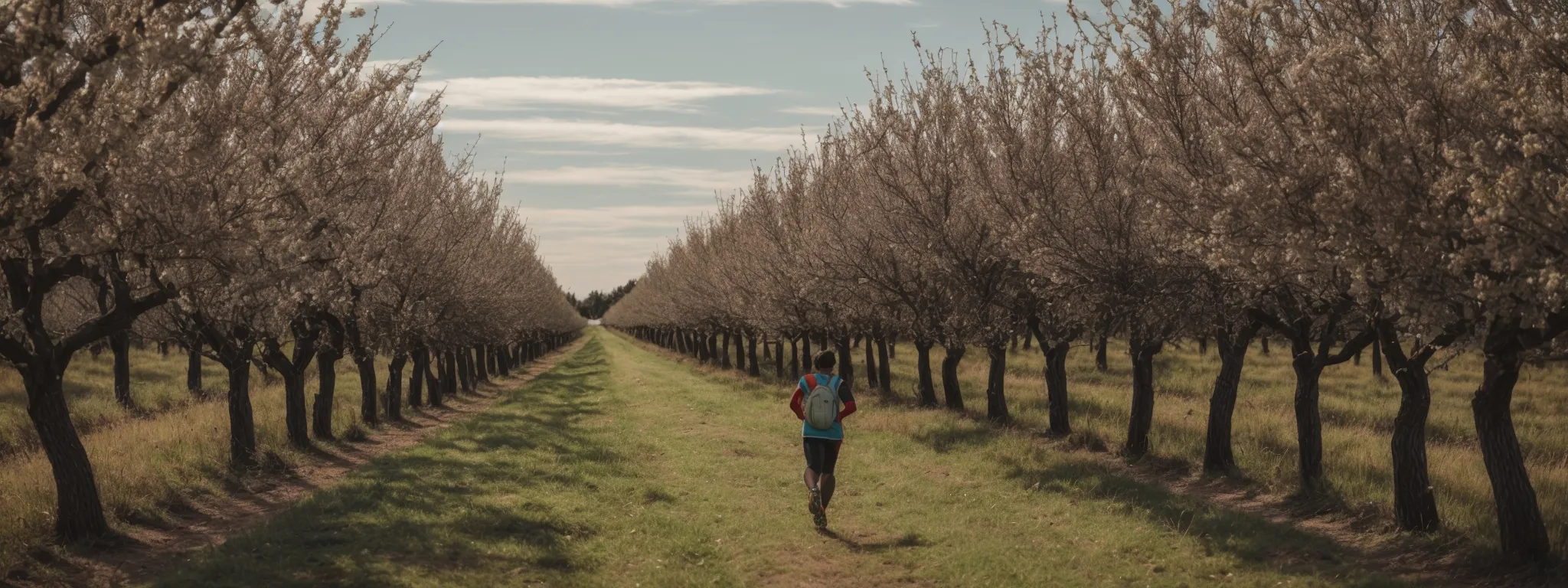Content Marketing vs Digital Marketing
Understanding the Distinction: Content Marketing vs Digital Marketing In the vast expanse of modern marketing, discerning between content marketing and digital marketing is like traversing two sides […]
Understanding the Distinction: Content Marketing vs Digital Marketing
In the vast expanse of modern marketing, discerning between content marketing and digital marketing is like traversing two sides of the same coin, each with its unique imprint on a brand’s visibility and engagement.
Content marketing captivates audiences through compelling narratives, fostering lasting relationships, whereas digital marketing encompasses a broader spectrum of channels to boost brand presence and drive conversions.
Understanding their interplay and individual strengths is paramount for businesses aiming to cut through the competitive digital noise.
Keep reading to unravel how they can synergize to magnify your marketing strategy’s impact.
Key Takeaways
- Content Marketing Focuses on Storytelling and Relationship Building for Long-Term Brand Loyalty
- Digital Marketing Employs Diverse Tactics for Immediate Conversion Goals Across Various Platforms
- Technical Skills and Data Analytics Are Crucial for Optimizing Digital Marketing Strategies
- Effective Marketing Strategies Combine Content Marketing’s Narrative Strength With Digital Precision
- Integration of Services Like LinkGraph and SearchAtlas Supports a Unified and Effective Marketing Ecosystem
Defining the Battlefield: Content vs Digital Marketing

In the dynamic realms of promoting brands and engaging audiences, understanding the distinction between content marketing and digital marketing becomes paramount.
The former, content marketing, stands as the heart through which a brand’s story pulses, relying on a strategic approach to drive customer action via valuable narratives.
In contrast, digital marketing spans a broader spectrum of marketing tactics that orbit beyond content, leveraging various channels and methodologies to cast a wider net across potential consumer bases.
Both are integral components of a marketing strategy, yet each dances to a rhythm unique to the goals they aim to achieve.
The Heart of Content Marketing
The essence of content marketing lies in its power to create and distribute valuable, relevant, and consistent content that attracts and retains a clearly defined audience. This strategic marketing approach is centered around storytelling and providing genuinely useful information that helps build a connection with the target audience.
As a pivotal element of an effective digital marketing strategy, content marketing is dedicated to influencing customer behavior, with the ultimate goal of driving profitable customer action. This is not a mere transactional approach but a deep-seated commitment to nurturing a strong brand-customer relationship through insightful and engaging content.
The Breadth of Digital Marketing
Digital marketing extends its tendrils through a multitude of touchpoints, each offering a distinct avenue for interaction with the consumer. It harnesses the power of search engine optimization, PPC Google Ads strategy, and social media marketing to cast the brand’s message far and wide. Professionals exploit this expanse, employing both data-driven approaches and creative insight to optimize the visibility and reach of a brand’s presence online.
Engagement and conversion materialize as the cornerstones of this expansive discipline. Marketers craft campaigns that encompass not only content marketing but also email marketing, affiliate marketing, and influencer marketing as part of a larger marketing ecosystem. Each element synergizes to build a more formidable digital footprint, one that moves beyond momentary visibility to create tangible, sustained interaction with the target demographic.
Diving Deep Into Content Marketing Strategies

The journey into content marketing strategies begins with the art of storytelling.
Brands that master this craft do not merely fill space with words and media; they weave compelling narratives that captivate and resonate with their audiences, laying the foundation for lasting engagement.
It is within this realm that content marketing stakes its claim, positioning itself as a critical catalyst for brand awareness.
Through fostering meaningful connections and consistently delivering value-laden content, businesses leverage content marketing strategies to not only enlighten their audiences but to also plant the seeds of loyalty and trust that can thrive over time.
Crafting a Story Through Content
Crafting a Story Through Content necessitates an intimate understanding of one’s audience, tailoring narratives that not only inform but also inspire and stir the imagination. The tactful content marketer navigates this terrain with finesse, transforming information into a mosaic of experiences that leads the audience on a journey aligned with the brand’s core message.
In the hands of a skilled content strategist, the crafting of impactful stories becomes a conduit for creating emotional connections and fostering brand loyalty. They strategically deploy narratives that intertwine a brand’s values and vision with the desires of the target audience, enabling an authentic dialogue that stands apart in the cacophony of the digital marketplace.
Engaging and Retaining Audiences
Engagement and audience retention are the linchpins of content marketing, dictating the success of digital efforts. A brand must amplify its online footprint with content that not only attracts but captivates its audience, ensuring a return investment in the form of loyal followers.
To retain these engaged individuals, companies must anticipate and fulfill evolving content desires and preferences: delivering consistently high-quality and interactive experiences that encourage their audience to stay connected and invested over time.
- Attract audience with captivating content
- Anticipate evolving audience content desires
- Deliver consistent, high-quality experiences
- Foster brand loyalty and long-term audience investment
Content Marketing’s Role in Brand Awareness
Content marketing emerges as the vanguard in elevating brand awareness, presenting narratives that connect with the core of human experience.
As a strategic force, it deploys creativity to etch a brand into the public consciousness, crafting an identity that resonates on a personal level with consumers.
Digital Marketing: Beyond Just Content

In the intricate tapestry of modern marketing, digital marketing unfurls as a discipline that transcends the boundaries of traditional content strategies.
It is a multifaceted endeavor that thrives on harnessing diverse digital channels, from the ubiquity of social media to the targeted precision of PPC campaigns.
The realm of digital marketing is animated by data-driven campaigns that glean insights from a plethora of user interactions, ensuring that every aspect of promotion is optimized for maximum impact.
As companies pivot to incorporate cutting-edge technologies in their promotional activities, the scope of digital marketing broadens, offering an ever-evolving toolset to captivate and convert the digital consumer.
Harnessing Diverse Digital Channels
In the labyrinthine world of digital marketing, the capacity to exploit diverse digital channels is imperative for any brand. These avenues serve not merely as conduits to disseminate information but as platforms for strategic engagement, enabling a more nuanced dialogue with varied segments of the audience.
Proficient digital marketers understand the importance of a dynamic presence across these channels, whether it be through targeted PPC campaigns on search engines, or curated social media posts that reach users right on their feeds. This multipronged approach ensures that every message is tailored to resonate effectively with each unique user, thereby maximizing brand impact and conversion rates:
- Targeted PPC campaigns deliver precise brand messaging.
- Social media platforms foster tailored user engagement.
- Multipronged strategies enhance brand impact and conversion.
The Power of Data-Driven Campaigns
The potency of digital marketing strategies is often amplified through the Meticulous Analysis and Application of Data. It is this evidence-based framework that allows campaigns to transcend guesswork, fine-tuning each marketing effort to the behaviors and preferences of the target audience.
Data-driven campaigns are catalysts for optimization, enabling companies to understand the nuances within search engine metrics, customer engagement levels, and conversion rates. These insights pave the way for iterative improvement, ensuring that each marketing tactic is continuously evolving and becoming more effective over time:
- Analysis enhances understanding of target audience behaviors.
- Insights direct improvement in marketing tactics.
- Continuous evolution drives campaign optimization.
Integrating Technology in Promotion
In the grand chessboard of digital marketing, the integration of technology is akin to unleashing a powerful queen, capable of swift, decisive moves that redefine the promotion landscape. State-of-the-art martech offerings, like the tools provided by LinkGraph and SearchAtlas, equip marketers with an arsenal of capabilities, from machine learning algorithms that predict consumer behavior to Automation That Personalizes the User Experience at scale.
Amidst this backdrop, technology becomes a bridge connecting creative marketing strategies with measurable outcomes. With the deft incorporation of advanced digital PR services and SEO reputation management, brands can monitor and enhance their digital footprints, creating more impactful promotional campaigns that resonate with their audience and encourage meaningful engagement.
Content vs Digital: Grasping Core Objectives

In the arena of modern brand promotion, strategic approaches often pivot between the nurturing undertones of content marketing and the direct, performance-driven motives of digital marketing.
Content marketing plays the long game, steadily building and nurturing relationships, setting the stage for a profound alignment between brand and consumer ethos.
Concurrently, digital marketing zeroes in on immediate conversion goals, employing agile, data-empowered techniques to elicit swift responses from the target audience.
Both approaches, while distinct in their strategies and end-goals, are fundamental to the success of comprehensive marketing campaigns, constructing a nuanced synergy that bolsters both brand equity and market performance.
Content Marketing’s Long Game in Building Relationships
Content marketing excels in its ability to foster deep connections, establishing a rapport with consumers that extends beyond surface-level engagement. Through this strategic emphasis on relationship-building, brands cultivate a sense of community and belonging among their audience, sowing the seeds for enduring loyalty and advocacy.
The commitment to crafting stories and experiences that resonate on a personal level invites consumers to embark on a journey with the brand, one that is measured not in clicks and conversions, but in trust and mutual respect. These relationships, carefully nurtured over time, become the bedrock upon which sustainable business growth is built.
| Content Marketing Approach | Core Objective | End Result |
|---|---|---|
| Storytelling and Engagement | Build brand-consumer relationships | Brand loyalty and advocacy |
| Experience Crafting | Cultivate trust and respect | Sustainable business growth |
Digital Marketing’s Immediate Conversion Goals
Digital Marketing pivots on achieving immediate conversion goals, deploying a suite of rapid-response strategies tailored to elicit direct action from consumers. It’s an arena where each click, like, and purchase is a meticulously tracked event, signaling the effectiveness of the campaign.
Marketers within the digital spectrum are adept at leveraging time-sensitive tactics such as a PPC Google Ads strategy and Amazon PPC strategy, all engineered to turn interest into action with precision. This results in a dynamic ecosystem where each digital touchpoint is optimized for conversion:
- PPC campaigns are engineered for immediate consumer action.
- Amazon PPC strategy aligns with consumer purchasing behavior.
- Each digital touchpoint is analyzed for conversion optimization.
Time Horizon: How Content and Digital Differ

In the fast-evolving landscape of brand promotion, distinguishing between content marketing and digital marketing hinges upon understanding their respective time horizons.
Content marketing is akin to planting an orchard—its fruits are not immediate, but the investment promises a bountiful harvest of loyalty and engagement over time.
On the flip side, digital marketing resembles a series of sprints, where quick, impactful strides are made to generate rapid conversions and tangible results.
Each approach bears its unique temporal blueprint, ensuing a tailored synthesis of strategies to meet short-term objectives and foster long-term growth.
Content Marketing’s Investment in Longevity
Content marketing forges its legacy through a sustained commitment to audience enrichment, focusing on longevity rather than instantaneous outcomes. The strategic deployment of SEO content, social media narratives, and captivating blog posts is designed to incrementally enhance brand reputation and foster continuous audience engagement.
The cultivation of meaningful content stands as a testament to a brand’s dedication to its consumer’s journey, investing in the development of trust and expert status that accrue value over a protracted period. It is this long-term orientation towards relevance and resonance in a consumer’s life that distinguishes content marketing’s pursuit of enduring market presence.
The Rapid Impact of Digital Marketing Efforts
Digital marketing efforts operate with an agility that propels brands to prominence with swift precision. The focus is on creating immediate touchpoints that spur consumers into action, capitalizing on the dynamic nature of digital interfaces like search results and social media platforms to amplify conversion opportunities.
Within the digital sphere, a well-crafted campaign can pivot the consumer’s attention and drive relevant traffic towards targeted initiatives. Such strategies thrive on data analytics to adapt and respond in real-time, ensuring that marketing efforts are not just seen but felt, influencing user behavior at the crucial moments of decision-making.
Precision vs. Breadth in Marketing Approaches

In the contrasting realms of marketing, the nuances that delineate content marketing from digital marketing lie in their respective approaches to audience engagement.
Content marketing concentrates on targeted communication, meticulously crafted to connect deeply with a specific demographic, delivering tailored narratives that resonate on a profoundly personal level.
On the other hand, digital marketing campaigns enjoy a broad reach, deploying a diverse array of tactics across a spectrum of platforms aimed at capturing attention in the vast digital expanse.
This section will explore the focused precision intrinsic to content marketing, and contrast it with the extensive influence wielded by comprehensive digital marketing campaigns.
Targeted Communication in Content Marketing
At the core of content marketing lies the principle of delivering targeted communication that speaks directly to the heart of a specific audience segment. By honing in on this focused approach, content marketers can craft messages that resonate at a deeper, more personal level, thereby enhancing the relevance and impact of the content shared with their readers.
This Precision in the Articulation of Content allows marketers to forge stronger connections with potential buyers, ultimately guiding them through the buyer’s journey with rich, persuasive narratives. These bespoke communications are tailored not only to inform but also to transform passively interested individuals into enthusiastic brand advocates.
Broad Reach of Digital Marketing Campaigns
Digital marketing campaigns offer a canvas as expansive as the digital world itself, enabling brands to disperse their messages across a multitude of online platforms. This reach is not confined by geography or time, allowing for marketing campaigns that touch audiences globally, fostering recognition that transcends borders.
The power of digital marketing lies in its ability to leverage varied tactics—from search engine marketing to video marketing—to meet consumers where they are. Each campaign Orchestrates a Symphony of Touchpoints, from tailored PPC Google Ads to interactive social media posts, ensuring that a brand’s presence is both omnipresent and nuanced in its appeal.
Skill Sets Required for Content and Digital Marketing

As digital landscapes evolve and strategies converge, the skill sets required for content and digital marketing grow increasingly specialized.
Crafting the narrative that defines a brand’s voice demands a blend of creativity and nuanced storytelling prowess, while the multifaceted nature of digital marketing calls for a robust technical aptitude paired with sharp analytical skills.
In this section, we unravel the intricate skill sets that power the engines of content marketing and digital marketing, analyzing how each plays a critical role in sculpting the architecture of effective marketing strategies in the digital age.
Creative Storytelling and Brand Messaging
The artistry of creative storytelling in content marketing involves constructing a compelling brand narrative that transcends mere facts, weaving the essence of the brand into a story that stirs the imagination and elicits a visceral connection with the audience. Writers in this domain not only relay information but transform it into a vibrant tapestry that humanizes the brand and fosters emotional engagement.
Brand messaging, on the other hand, is the strategic distillation of a company’s ethos into key messages that resonate clearly and consistently across all marketing channels. This requires the talent to encapsulate the brand’s identity and values within concise, powerful words, honing a message that aligns with the audience’s values and bolsters the brand’s position within its market niche.
Technical Aptitude and Analytical Skills
In the refined realm of digital marketing, technical aptitude is a non-negotiable expertise crucial for navigating the multifaceted digital environment. Mastery over tools such as SearchAtlas SEO software and the methodical approach of PPC Google Ads strategy allows marketers to dissect vast data landscapes, forging paths to victory in the digital domain.
Analytical skills complement technical prowess, equipping marketing professionals with the ability to interpret data and translate it into actionable insights. This synergy propels the strategic refinement of campaigns, where a keen analysis of user behavior and search result page performance informs optimization and enhances marketing efficacy:
- Dissection of digital environments ensures strategic campaign navigation.
- Interpretation of data leads to actionable marketing insights.
- Keen analysis shapes optimization of user engagement and conversion.
Measuring Success in Content and Digital Marketing

In the intricate world of brand promotion, measuring success is paramount to discerning the efficacy of one’s marketing strategies.
While content marketing metrics offer insights into audience engagement and content’s influence on brand reputation, KPIs and ROI in digital marketing provide a quantifiable measure of campaign performance and financial return.
This bifurcation of evaluation underscores the distinct nature of content and digital marketing’s objectives, equipping marketing professionals with the tools needed to calibrate their approaches and sharpen their competitive edge.
Content Marketing Metrics to Track
Content marketing metrics offer a vital indication of a campaign’s resonance with its intended audience. They are instrumental in gauging the depth of audience engagement, the spread of brand messaging, and the subtle shifts in brand perception over time.
Chief among these metrics are website traffic, lead generation rates, and social media interactions. These indicators not only measure the reach of content but also its ability to convert passive readers into active participants and potential customers:
- Website traffic assesses the magnetism of content and its capacity to attract visitors.
- Lead generation rates indicate the content’s effectiveness in nudging readers towards customer action.
- Social media interactions reflect the content’s shareability and its role in extending brand conversations.
KPIs and ROI in Digital Marketing
KPIs (Key Performance Indicators) in digital marketing are pivotal benchmarks that quantify the effectiveness of campaigns and strategies in achieving specific business objectives. They articulate the performance of digital marketing efforts, including search engine marketing and social media campaigns, providing critical insights into how well these initiatives meet predefined goals.
ROI (Return on Investment) stands out as the cardinal metric that evaluates the profitability of digital marketing activities, juxtaposing the revenue generated against the costs incurred. It offers a clear and monetized perspective on the value digital marketing strategies add to the company, informing decisions and future investments in the marketing landscape.
| Marketing Metric | Purpose | Impact on Strategy |
|---|---|---|
| KPIs | Measure campaign effectiveness | Inform strategy adjustments |
| ROI | Assess financial profitability | Guide budget allocation |
Blending Content and Digital Marketing for Maximum Impact

In the confluence of brand promotion and audience engagement, melding the deliberate narrative focus of content marketing with the far-reaching capabilities of digital marketing becomes a strategic imperative.
By synchronizing content and digital strategies, organizations can craft a cohesive marketing ecosystem that amplifies their message and solidifies their market standing.
This harmonization ensures that each methodological strength is harnessed to full effect—content marketing’s persuasive storytelling with digital marketing’s data-driven precision—creating a unified front that propels both brand awareness and business growth.
Synchronizing Content and Digital Strategies
The synchronicity between content and digital marketing strategies is not just desirable but vital for brands that seek cohesion in their marketing narrative. Embracing both, expertise in content creation and digital disciplines allow organizations to Navigate the Complexity of Consumer Touchpoints with unified messaging that aligns shared goals across all channels.
Meticulous integration enhances the reach and effectiveness of marketing initiatives, as content marketing’s engagement-driven tactics are reinforced by digital marketing’s analytics and technical prowess. This collaboration ensures that the nuanced storytelling inherent in content marketing is broadcast with precision, meeting each consumer where they are with a message that resonates and drives action.
Creating a Unified Marketing Ecosystem
To forge a unified marketing ecosystem, companies must dissolve the silos that typically separate content marketing from broader digital strategies. Harmonizing these efforts demands a strategic orchestration where content’s narrative pull synergizes with digital’s expansive reach, ensuring a seamless Transition for the Consumer Across Various Touchpoints.
Integrating LinkGraph solutions and SearchAtlas SEO software into this ecosystem enriches the marketing matrix with powerful optimization and analysis tools. Resulting in a cohesive framework that not only captivates with engaging content but also compels with targeted digital interactions that underpin a formidable online presence.
Conclusion
Understanding the distinction between content marketing and digital marketing is crucial for driving brand success in the digital age.
Content marketing centers on crafting a compelling brand narrative and fostering deep connections with the audience, investing in long-term relationships and brand loyalty.
On the other hand, digital marketing encompasses a wider range of quick-response strategies aimed at immediate conversion goals, utilizing diverse channels and data-driven campaigns for rapid results.
While content marketing builds a solid foundation of trust and expert status over time, digital marketing maximizes reach and optimizes conversions in the short-term.
Marketers must blend the strengths of both approaches—content marketing’s powerful storytelling and digital marketing’s analytical precision—to create a cohesive marketing ecosystem that amplifies messages and propels business growth.
Recognizing and harnessing the unique benefits of each ensures a strategic, comprehensive approach to audience engagement and brand promotion.















































































